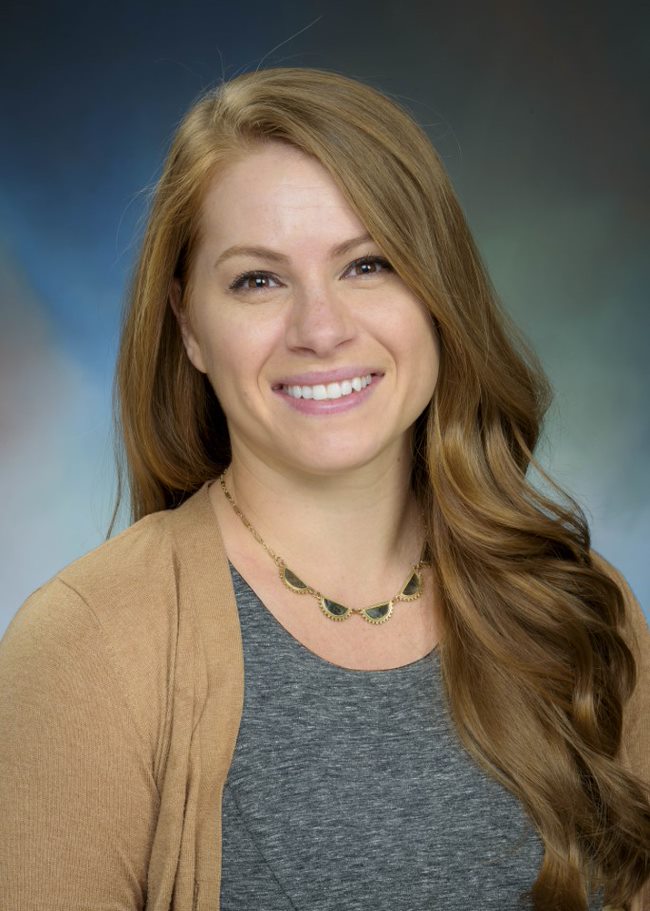As back-to-school season unfolds and children face the challenges of new academic milestones, UTMB Health experts offer advice, tips and tricks to help all members of the family cope with the feelings and emotions that come with seasons of change and
uncertainty.

In a Q&A with Community Impact, two UTMB psychologists with the Department of Psychiatry and Behavioral Sciences—Dr. Kimberly Gushanas, assistant professor, and Dr. Barbara Calvert, associate professor—discuss effective strategies for
parents to help their children navigate the unknown and any new stages or situations that may arise during their academic journey. Together, they shed light on the path to supporting emotional well-being during these transformative phases.
What services does UTMB have to help support individuals through periods of change
Dr. Gushanas: We offer a variety of services at UTMB that many families should be aware of. When thinking about these big life changes, take a step back and consider a broader view of wellness and self-care beyond therapy. It's important to connect
with your primary care doctor. Ensuring regular health visits is crucial because we know health and mental well-being are closely linked. Engaging in preventive measures to maintain wellness is paramount. UTMB boasts numerous clinics throughout the
region, catering to families, children and adults. Staying connected and prioritizing your physical well-being is of utmost importance.
How can parents assist their children in managing the transition from home to school, along with the associated emotions?
Dr. Gushanas: Having a clear plan can make a significant difference. This involves preparing both your children and yourself for the upcoming changes. Take the time to walk through the steps of what's ahead, be completely transparent and familiarize them
with the names of the people involved and, if possible, arrange for school tours.
These tours allow them to visit the school, explore different spaces and gain a sense of familiarity before they start. Introducing them to relevant books is another valuable practice. Equally, for parents, being well-informed and having a solid plan
in place eases the anxiety of uncertainty. Knowing who to contact, how to reach out and the process to follow if a problem arises can greatly alleviate the stress of the unknown, which is ultimately what fuels apprehension.
As a child enters high school and faces change, what advice do you have for parents in handling their own emotions?
Dr. Calvert: The key is to recognize your emotions and be open about who to reach out to and what to do if an issue arises. Knowing what their day will be like as much as possible can greatly reduce the stress of the unknown. It can also

be helpful to model that behavior for your child. By sharing your emotions with your kids, you create a safe place for them to come talk and they know that these emotions are OK. In terms of big changes and transitions in life, they're actually expected.
How can parents and children work on fostering open communication?
Dr. Calvert: Begin as early as you can. Help them put words to their emotions and describe what they're feeling. This is crucial, particularly for younger children who might lack the vocabulary to label their experiences. Validate these emotions, so your
child understands that whether they're starting kindergarten or preparing for college, these feelings are typical and anticipated. There's no need to avoid or feel ashamed of them.
Dr. Gushanas: We apply this concept in a therapy method I use for adolescents regarding emotions. We label them as 'normal, natural and harmless.' Not only is it normal to experience whatever you're feeling—because entering high school or deciding
to move away for college can trigger feelings of anxiety or depression—but it's also natural. These emotions are what your body is meant to experience. And they are harmless. No matter the type of feelings that arise, they are all valid and
safe. The key lies in how you manage and respond to them. Normalizing and validating emotions is incredibly beneficial.
Dr. Calvert: I also believe in having a plan for yourself as a parent and understanding the kind of support you require. Recognize what helps regulate your emotions and reduce anxiety, allowing you to apply these methods for your own benefit. In addition,
modeling these strategies for your children is important because everyone has different values and interests.
What role does UTMB play in the Child Psychiatric Access Network?
Dr. Gushanas: In terms of mental health care, notable advancements are taking place in the state, with UTMB playing a significant role. Specifically for youth and families, there's the Child Psychiatric Access Network (CPAN), a network providing psychiatric consultation to pediatricians. This service, offered by UTMB for our local region, is accessible to pediatricians statewide. They can speak directly
with our UTMB psychiatrists or connect with a social worker who can provide valuable resources to families.
How does UTMB's affiliation with the Texas Child Health Access Through Telemedicine program aim to increase access to mental health care?
Dr. Gushanas: UTMB Health is involved in a program called Texas Child Health Access Through Telemedicine (TCHATT).
I'm really proud to be a part of it. TCHATT is a state-funded program, and it's a brief intervention program aimed at helping increase access to mental health care. All over the state of Texas, school districts are actually eligible to apply to be
part of this program. Kids can go through their schools and get access to free therapy and psychiatry services. There's a massive number of clinicians working on this project. Some of these kids have never seen a doctor, let alone a mental health
clinician.
How can individuals address concerns without committing to long-term therapy?
"Dr. Gushanas: You don't have to be in crisis to require someone to talk to. Even if you have a few questions, making a single appointment can be helpful. There's no need to commit to lifelong therapy to engage with us once. I think it's something people
should feel more comfortable with. I understand there's a stigma surrounding seeing a therapist or a psychologist, but simply asking questions works. We're here, highly trained and dedicated to supporting the community. Our aim is to make ourselves
accessible to those who seek answers, advice or even just a conversation. You don't have to be at a critical point to benefit from therapy. Sometimes, it's about wanting a sounding board, someone to bounce ideas off of or ask questions.
The above story was produced by Holly Galvan with Community Impact's Storytelling team with information solely provided by the local business as part of their "sponsored content" purchase through our advertising team. Our integrity promise to our
readers is to clearly identify all CI Storytelling posts so they are separate from the content decided upon, researched and written by our journalism department.